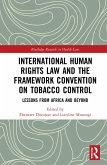This book studies the response of the European Court of Human Rights, the international court that supervises governmental compliance with the European Convention on Human Rights (ECHR), to complaints submitted to it by companies and their shareholders. The protection of business vis-à-vis governmental regulation is hardly the main concern of international human rights law, yet it is not disputed that companies, and their owners, in principle enjoy protection under the ECHR.
Such complaints are not unproblematic for the Court in Strasbourg, however.
This book analyses the Court's reasoning in three groups of cases in which they have presented difficult issues of treaty interpretation. As the case law is streamlined in a minimalist fashion which obscures the Court's rationale, the book construes the structural framework within which the Court operates and explains how the relevant case law is largely coherent when considered against the general structure of ECHR protection.
This book is the first major study of the protection of business enterprise under the European Convention on Human Rights and thus an invaluable guide to understanding how the Court in Strasbourg responds to corporate complaints. More importantly, by focusing on a field of European human rights law that is regarded by many as marginal and even objectionable, the book reveals the fundamental structures of European human rights protection, where the protection of economic activity and corporate
life is regarded as inseparable from core values of the ECHR such as an effective political democracy and the rule of law.
Such complaints are not unproblematic for the Court in Strasbourg, however.
This book analyses the Court's reasoning in three groups of cases in which they have presented difficult issues of treaty interpretation. As the case law is streamlined in a minimalist fashion which obscures the Court's rationale, the book construes the structural framework within which the Court operates and explains how the relevant case law is largely coherent when considered against the general structure of ECHR protection.
This book is the first major study of the protection of business enterprise under the European Convention on Human Rights and thus an invaluable guide to understanding how the Court in Strasbourg responds to corporate complaints. More importantly, by focusing on a field of European human rights law that is regarded by many as marginal and even objectionable, the book reveals the fundamental structures of European human rights protection, where the protection of economic activity and corporate
life is regarded as inseparable from core values of the ECHR such as an effective political democracy and the rule of law.








